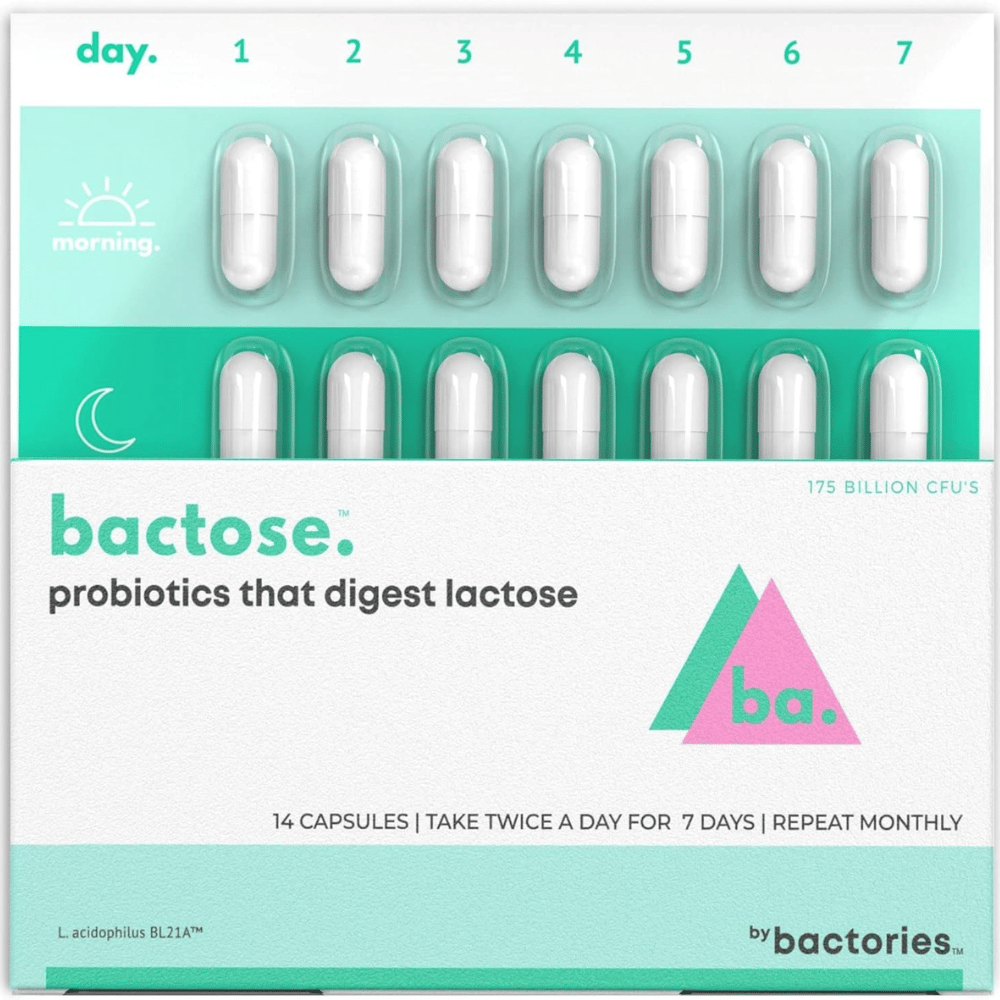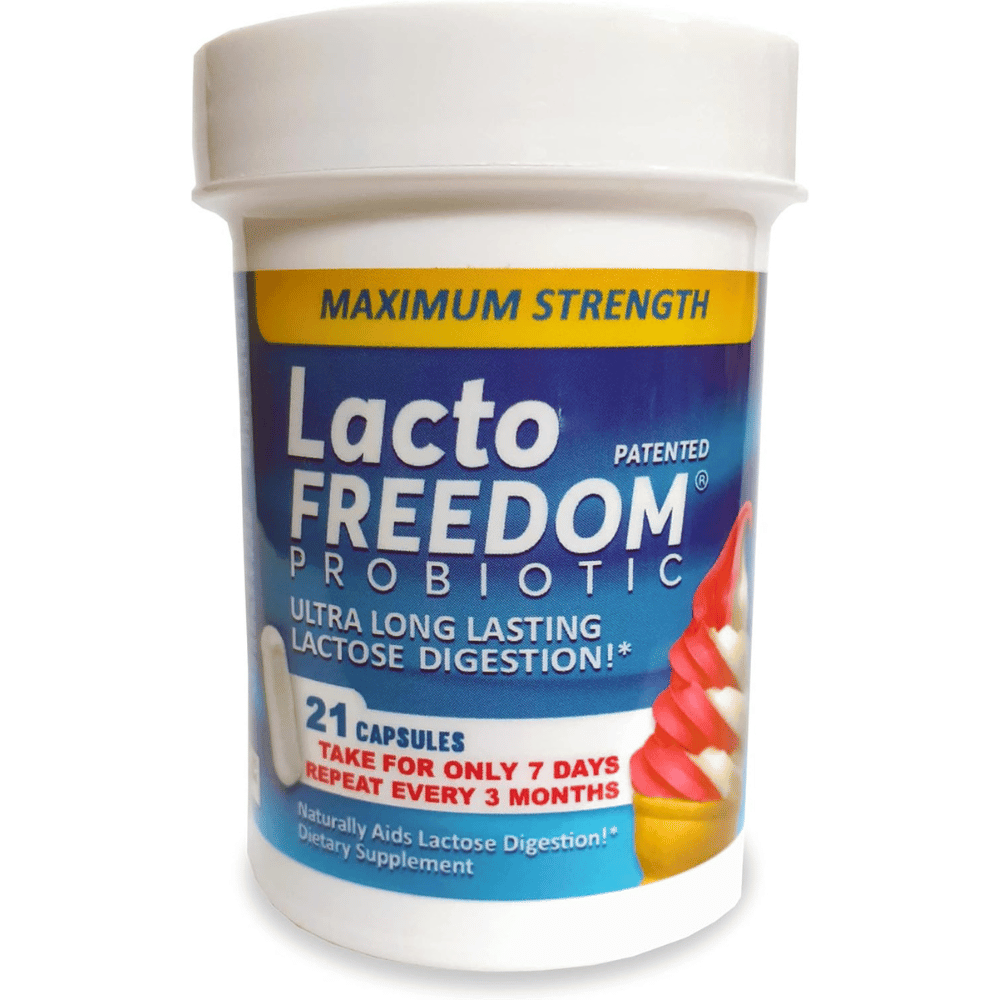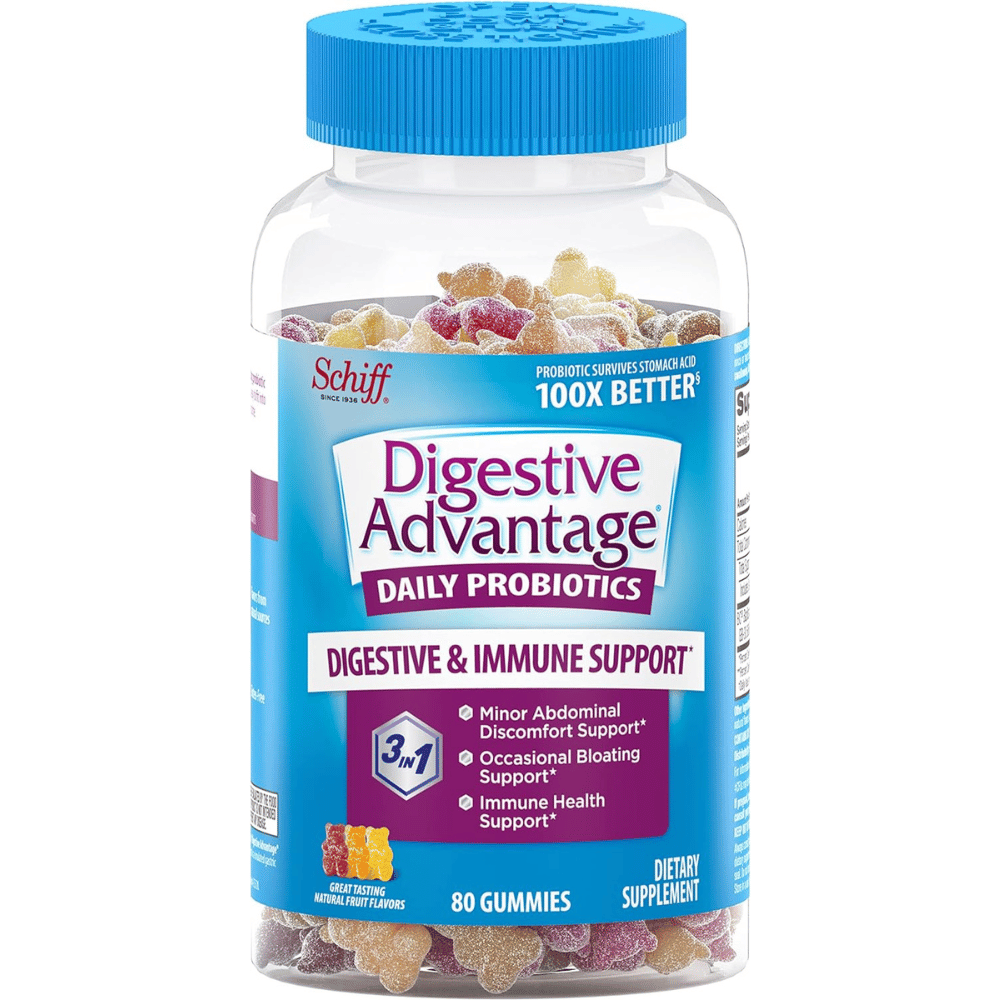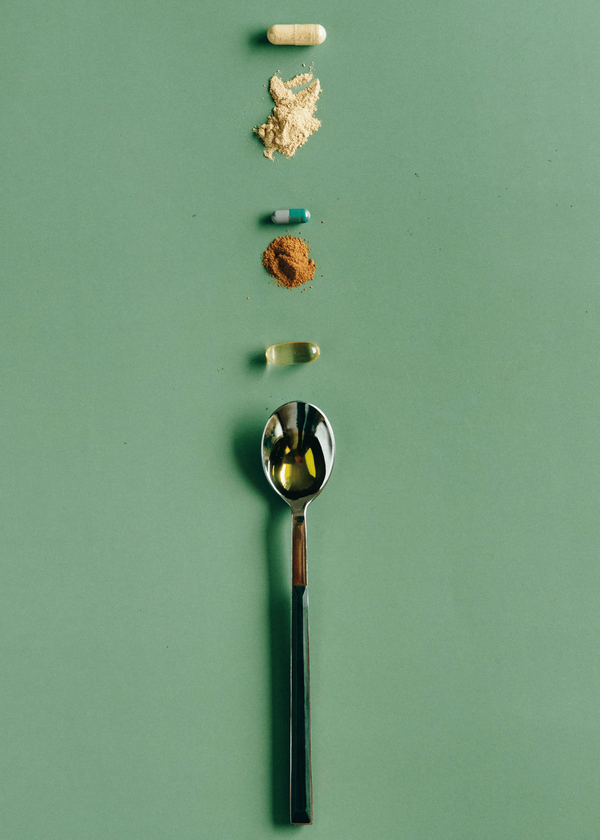Lactose intolerance (LI) can be a daily struggle, with symptoms that can disrupt your life. But what if you could find relief with the help of beneficial bacteria? Probiotics have been a buzzword in the health community for a while, and for good reason. They can play a significant role in managing LI. In this comprehensive guide, we'll explore the best probiotics for LI and how they can help you enjoy dairy without discomfort.
Key Takeaways:
- Identifying the Right Strains: Specific probiotic strains have been shown to improve lactose digestion and reduce symptoms in lactose intolerant individuals.
- Understanding the Benefits: Probiotic supplementation can enhance lactase activity, leading to better digestion of lactose ingested and fewer gastrointestinal symptoms.
- Choosing Quality Supplements: Not all probiotics are created equal. It's crucial to choose a high-quality probiotic supplement that contains strains beneficial for lactose intolerance.
The Struggle with Lactose: A Brief Overview
Lactose intolerance is a common digestive issue where the body lacks sufficient lactase, the enzyme needed to digest lactose found in milk and dairy products. This deficiency leads to gastrointestinal symptoms such as bloating, gas, and diarrhea when lactose intolerant subjects consume dairy. The condition can range from mild to severe, and while avoiding dairy is a common solution, it's not always preferred or practical.
Probiotics: The Digestive Superheroes
Probiotics are live microorganisms that, when administered in adequate amounts, confer a health benefit on the host. For those with LI, specific strains of probiotics can act as superheroes, aiding in the digestion of lactose. These beneficial bacteria can enhance lactase activity, helping to break down lactose more effectively and providing symptomatic relief.
The Science Behind Probiotics and Lactose Intolerance
A systematic review of studies has shown that certain probiotic strains can improve lactose digestion and reduce symptoms in lactose intolerant participants. These strains include Lactobacillus acidophilus and Bifidobacteria, which have been found to improve LI symptoms and stool consistency. The presence of these probiotics in the gut can help digest lactose, leading to a reduction in undigested lactose that can cause discomfort.
Choosing the Best Probiotic Supplement
When looking for a probiotic for lactose intolerance, it's essential to consider the specific strains and their efficacy. A high-quality probiotic supplement should contain strains that have been clinically proven to aid lactose intolerant individuals. Additionally, the viability and potency of the probiotic at the time of consumption are crucial for ensuring the bacteria can survive the journey to the colon and exert their beneficial effects.
Yogurt and Bifidobacteria: A Natural Solution
Yogurt is a fermented food that naturally contains live cultures, including Bifidobacteria, which can be beneficial for people with lactose intolerance. Regular consumption of yogurt has been associated with improved lactose digestion and fewer symptoms. The fermentation process reduces the lactose content, and the live cultures help further break down lactose, making yogurt a potentially suitable option for those with lactase deficiency.
Lactobacillus Acidophilus: The Lactose Fighter
Lactobacillus acidophilus is another strain that has shown promise in aiding lactose intolerant individuals. This specific strain can enhance lactase activity, allowing for better digestion of lactose ingested. Probiotic supplements containing Lactobacillus acidophilus, or even dairy products fortified with this strain, can provide symptomatic relief and improve the overall quality of life for lactose intolerant participants.
The Role of Probiotics in Dairy Science
Dairy science has recognized the potential of probiotics in managing lactose intolerance. By incorporating specific strains into dairy products, manufacturers can create options that are more digestible for lactose intolerant subjects. This not only broadens the range of dairy products available to those with LI but also ensures that they can benefit from the nutrients found in dairy without experiencing adverse symptoms.
Probiotics and Inflammatory Bowel Disease
While the focus here is on lactose intolerance, it's worth noting that probiotics have also been studied for their role in managing inflammatory bowel disease (IBD). Certain strains can help modulate the gut microbiota and reduce inflammation, providing relief for those with IBD. This highlights the broader potential of probiotics in digestive health beyond LI.
The Impact of Probiotics on Colonic Microbiota
Probiotic supplementation can positively affect the colonic microbiota, creating an environment that supports the digestion of lactose. By enhancing the growth of lactase-producing bacteria, probiotics can help reduce the amount of undigested lactose that reaches the colon, thereby decreasing the likelihood of gastrointestinal symptoms.
Fermented Foods: A Delicious Alternative
For those looking to incorporate probiotics into their diet naturally, fermented foods are an excellent option. Foods like kefir, sauerkraut, and kimchi are rich in probiotics and can help improve LI. These foods not only provide specific strains that aid in lactose digestion but also contribute to a diverse and healthy gut microbiome.
How We Choose
Given the vast array of probiotic options on the market, determining the most suitable one for individual needs can be challenging. Our team has conducted extensive research on numerous products to identify the top three probiotics for lactose intolerance. This effort is aimed at making the selection process for consumers easier, enabling them to find the appropriate probiotics without having to guess or waste money on something that doesn't work.
We hope you find your next best buy from the list below! Each product was independently selected by our editors. BlakesBestBuys may collect a share of The Best Probiotics For Lactose Intolerance On The Marketsales or other compensation from the links on this page if you decide to buy something (that's how we stay in business). Enjoy finding your next best buy!
The Best Probiotics For Lactose Intolerance On The Market

Best Probiotic For Lactose Intolerance Capsule
Bactose Probiotic Lactose Capsules
What We Love About It
Bactose doesn't merely contain lactase—it actively generates it! This L. Acidophilus Super Strain operates akin to miniature biofactories, churning out abundant lactase enzymes right where it matters most: in the gut. Its superior adherence to the intestinal lining ensures that Bactose stands out as a unique and effective solution for those who are lactose intolerant.
Why Bactose Probiotic Lactose Capsules Stands Out
Clinically tested with 89.5% Customer Satisfaction. Doctor and pharmacist approved, with a money-back guarantee, and it's non-GMO.
Naturally Sourced Ingredients which include the innovative BL21A probiotic that is designed to populate your gut flora and will start producing the lactase enzymes needed to break down lactose, allowing you to enjoy dairy products once again.
Dairy products are heralded as one of the most nutrient-rich foods available to humans. Yet, over 5 billion people worldwide are lactose intolerant, preventing them from benefiting from dairy's nutritional bounty. This product empowers you to reclaim the ability to digest and absorb dairy nutrients effectively.

Best Bang For The Buck Probiotic For Lactose Intolerance
Lacto-Freedom Probiotic
What We Love About It
This clinically proven formula not only aids in digesting lactose found in dairy products but also works to prevent the uncomfortable symptoms of being lactose intolerant, such as gas, bloating, and diarrhea. With just a week's regimen, this supplement continues to support the digestion of lactose for several months, thanks to the lactase enzyme it helps produce.
Why Lacto-Freedom Probiotic for Stands Out
This patented dairy digestant is clinically proven to facilitate the digesting of lactose-rich foods, offering an effective solution for individuals that are lactose intolerant. It stands alone as the only dairy digestive supplement on the market that delivers sustained relief. Proudly manufactured in the United States, this product features a patented formulation of L. acidophilus, ensuring quality and efficacy for consumers.

Best Probiotic For Lactose Intolerance Gummies
Digestive Advantage Probiotic Gummies For Digestive Health
What We Love About It
These delicious probiotic gummies help alleviate minor abdominal discomfort and occasional bloating. Seventy percent of your immune system is located in the digestive tract. That's where the patented BC30 probiotic can engage with your digestive system to support your body's overall digestive and immune health.
Why Digestive Advantage Probiotic Gummies For Digestive Health Stands Out
The BC30 probiotic strain is encased within a protective protein shell, which has been clinically demonstrated to enhance its resistance to stomach acid by up to 100-fold compared to traditional probiotics found in yogurt and fermented foods. This superior resilience ensures the delivery of a more significant quantity of live beneficial bacteria to the gastrointestinal tract, where they play a pivotal role in promoting digestive health and bolstering the immune system.
Summary
Lactose intolerance doesn't have to mean a life devoid of dairy delights. With the right probiotics, such as Lactobacillus acidophilus and Bifidobacterium longum, you can improve lactase activity and alleviate uncomfortable symptoms. Remember to choose a high-quality probiotic supplement with the right strains and CFU count, and consider other management strategies like gradual dairy introduction and lactose-free alternatives. With these tools, you can take control of your lactose intolerance and enjoy a more varied and comfortable diet.
FAQ'S
Can probiotics cure lactose intolerance?
Probiotics cannot cure lactose intolerance, as it is a genetic condition related to lactase enzyme production. However, certain probiotics can help manage discomfort by improving the body's ability to digest lactose.
How long does it take for probiotics to help with lactose intolerance?
The time it takes for probiotics to alleviate lactose intolerance symptoms can vary. Some people may notice improvements within a few days, while for others, it may take several weeks of consistent use to see significant changes.
Are there any side effects to taking probiotics for lactose intolerance?
Probiotics are generally considered safe for most people. However, some individuals may experience mild side effects such as gas or stomach cramps when they first start taking probiotics. These effects usually subside as the body adjusts to the new bacterial balance. If you have concerns, it's best to consult with a healthcare professional before starting any new supplement regimen.
What does the NHS say about probiotics for symptom support?
The NHS acknowledges that certain types of probiotics like Lactobacillus acidophilus could help with the reduction of lactose intolerance symptoms. They recommend trying non-yogurt probiotics that contain L. acidophilus
Is Greek yogurt better for lactose intolerance?
If you have mild lactose intolerance, simple plain Greek yogurt might just do the trick for you. How come? During its production process much of the lactose is removed. Besides that the live active cultures, also called probiotics, inside Greek yogurt help digest lactose!
Why did I suddenly become lactose intolerant?
This form of lactose intolerance occurs when your small intestine decreases lactase production after an illness, injury or surgery involving your small intestine. Diseases associated with secondary lactose intolerance include intestinal infection, celiac disease, bacterial overgrowth and Crohn's disease.
What happens if you ignore lactose intolerance?
If someone with a lactose intolerance continues to consume too much lactose, they may experience worsened symptoms, lower mood, and a reduced quality of life. Chronic diarrhea may lead to complications such as malnutrition, unexplained weight loss, and anemia.
Can you take probiotics and Lactaid together?
It is perfectly safe - and in fact, the lactose intolerant can benefit from the combination. Lactaid (lactase) oral supplements aim at converting lactose into simpler sugars before it hits the large intestine. The problem is that stomach acids often get to the lactase before it does its work. Enter probiotics.







